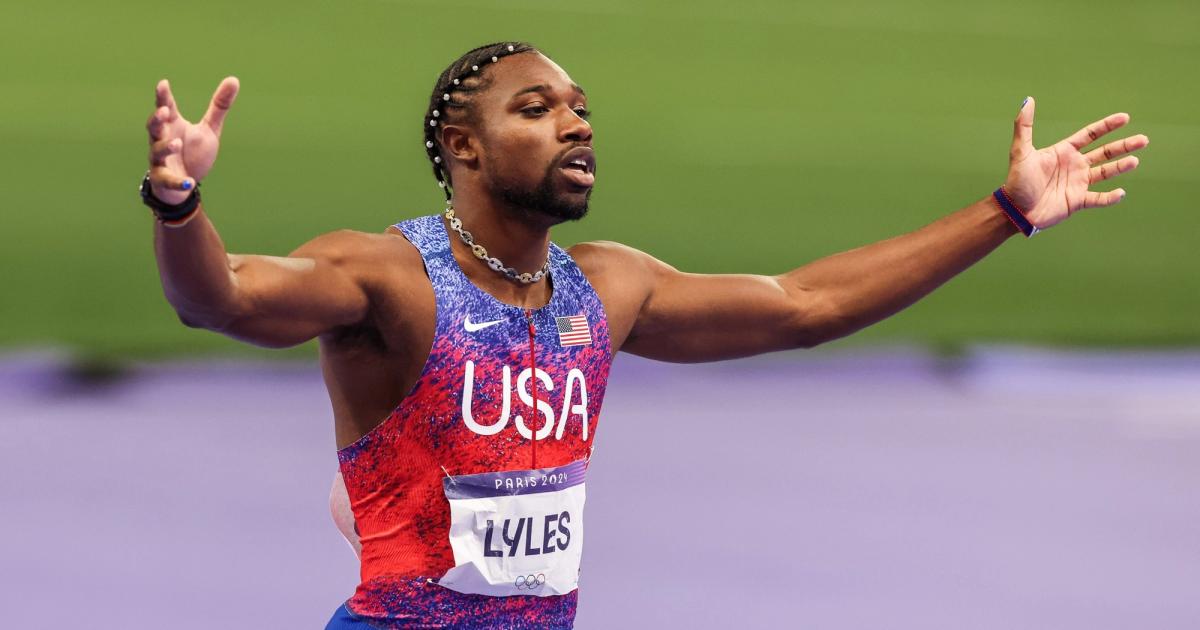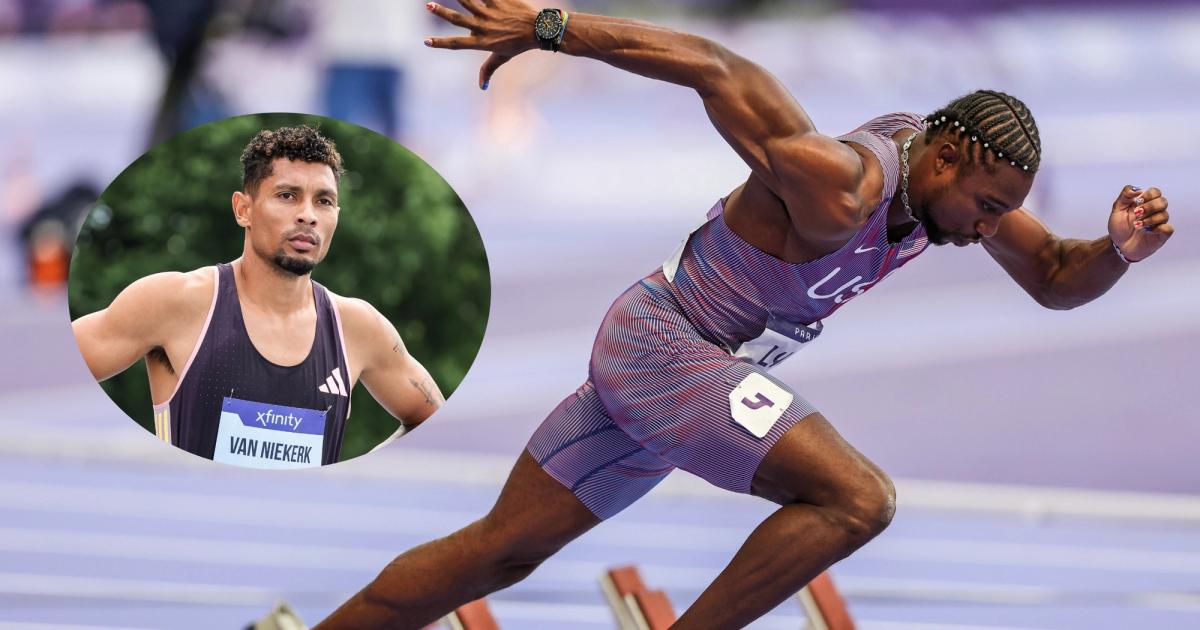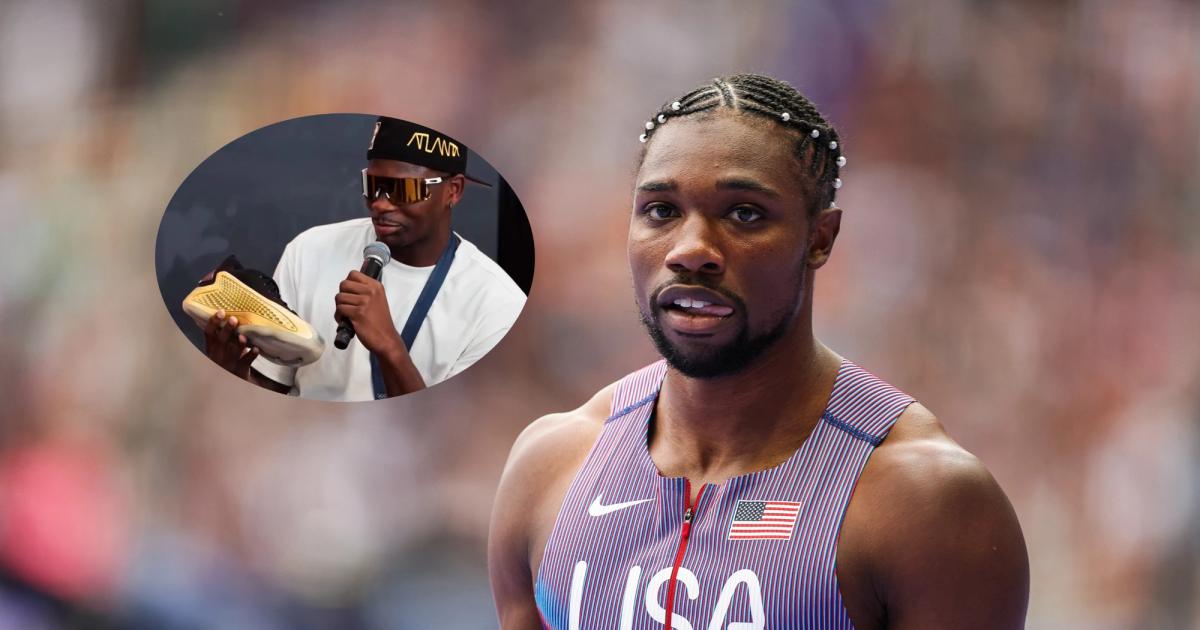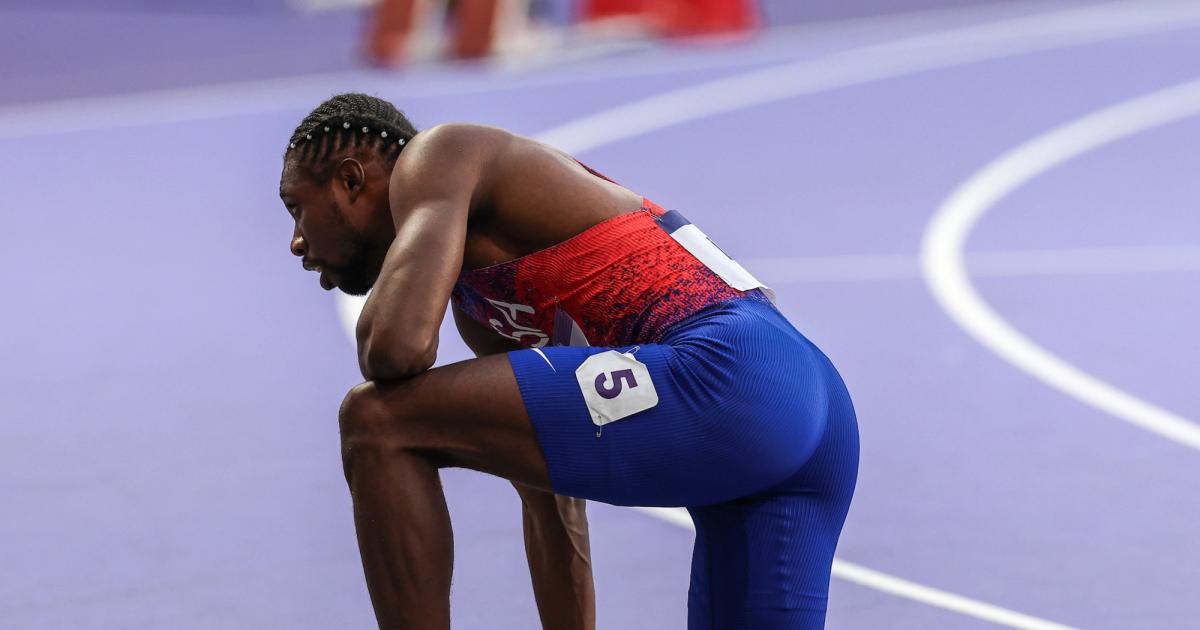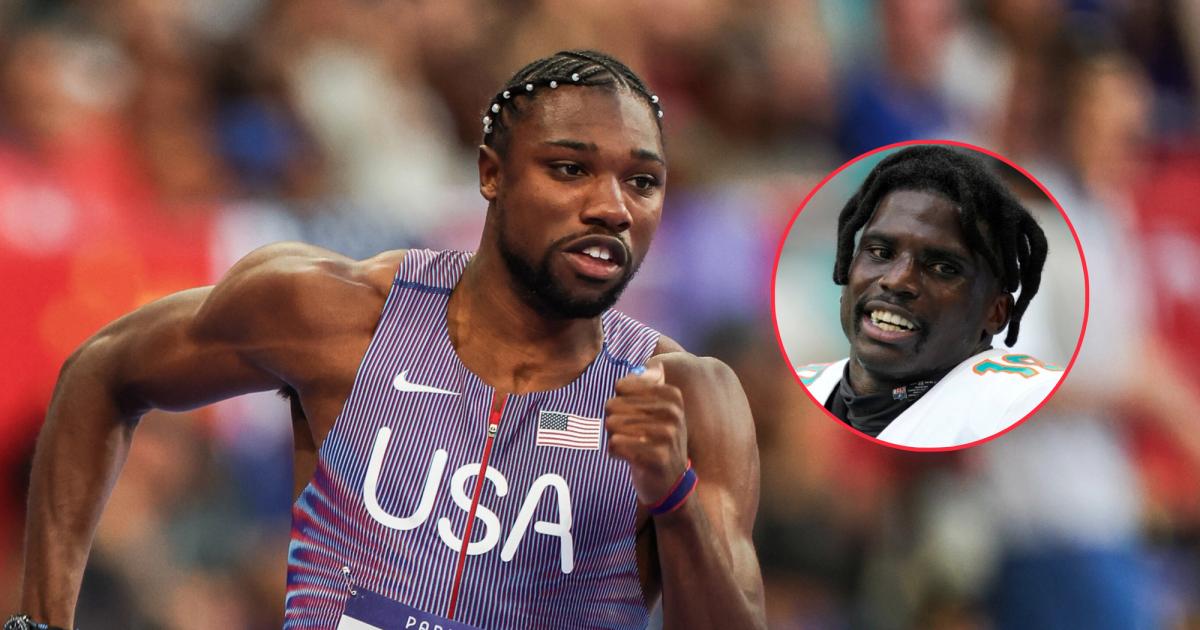By Citius Mag Staff
August 21, 2024
Noah Lyles has been called many things by fans and critics alike, but one thing’s for sure: he’s never been accused of being shy.
The newly-minted Olympic 100m champ has never walked past a microphone in silence, and when he does speak, he’s a seemingly endless source of quotes both thought-provoking and controversial. And unlike most track and field athletes not named Usain Bolt, Noah’s comments often often get coverage from the wider sports media world. For better or worse, you don’t often hear about Sydney McLaughlin-Levrone or Grant Fisher getting in beefs with NBA players.
Last weekend, Lyles appeared on a YouTube show called “Nightcap” to speak with NFL alumni Shannon Sharpe and Chad “Ochocinco” Johnson about his Olympic experience and the sporting public’s reaction to it (Think CITIUS MAG Live but for football). Topics covered included competing with COVID at the Olympics, potentially joining the Grand Slam Track league, controversies with NBA star Anthony Edwards, his response to a race challenge from the NFL’s Tyreek Hill, and his world record potential in the 400m. That’s like, a decade’s worth of headlines by your average track and field pro’s standards rolled out in one evening.
Love him or hate him, Lyles is a tremendous source of content. And whether you’re NBC, USATF, or a scrappy little online newsletter, success of the sport is ultimately not measured in how beloved your stars are: it’s measured in eyeballs and the dollars those eyeballs generate. The Lyles fandom would argue he’s working harder than anyone in the sport to raise track and field’s profile on the world stage. A cynical viewer could look at Noah Lyles’s media strategy and come to the conclusion that he’s deliberately saying things he knows will gin up controversy in order to get attention… and you know what? Both things can be true.
After winning the Olympic 200m title, Letsile Tebogo generated a little controversy of own when asked if he had any desire to become the new face of track and field, saying, "I think, for me, I can't be the face of athletics because I'm not an arrogant or a loud person like Noah. So, I believe Noah is the face of athletics." While keeping in mind that Tebogo was not communicating in his first language and that the connotation of words like ‘arrogant’ may have been lost in translation, the point is nevertheless an interesting one: being the face of the sport of track and field is not necessarily about being the fastest. That’s part of the equation, but gold medals alone will never be enough to dominate headlines and airtime. And if part of what runners like Tebogo want is to be paid a lot of money and for a lot of people to watch them race, being one lane over from Noah Lyles certainly doesn’t hurt.
Ultimately, there will be some “hot takes fatigue” if Lyles isn’t able to keep delivering the performances to back up his comments. But while he’s on top of the world at the same time as track rides an Olympic-sized wave of media coverage, Lyles getting on camera and being deliberately inflammatory seems to be paying off for the sport as a whole.
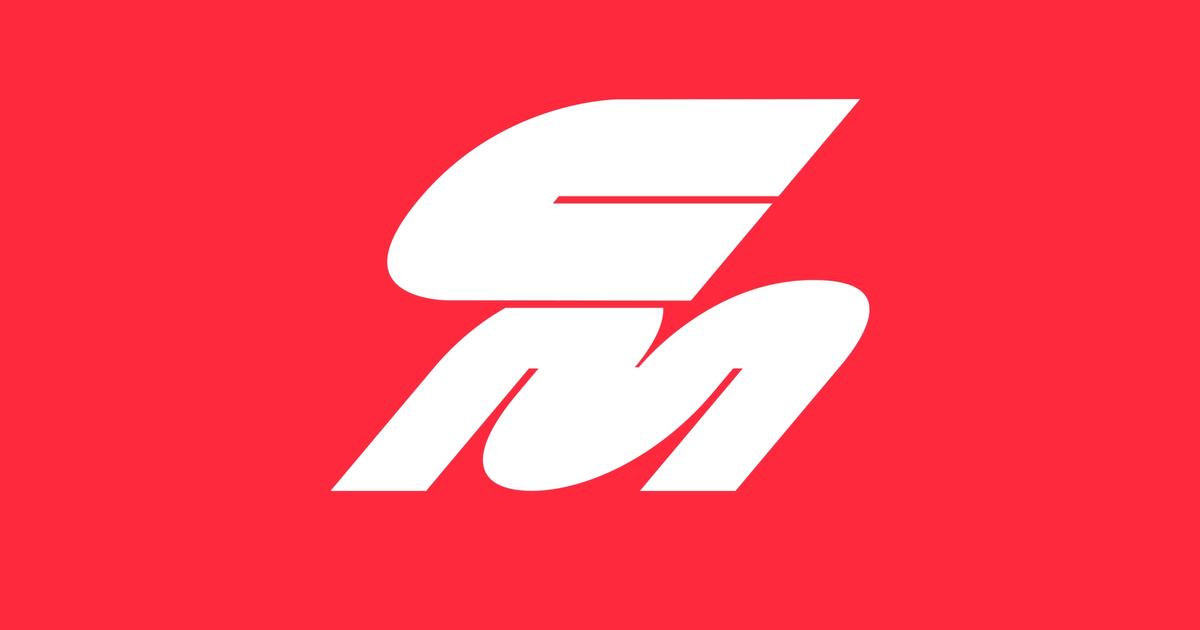
Citius Mag Staff
